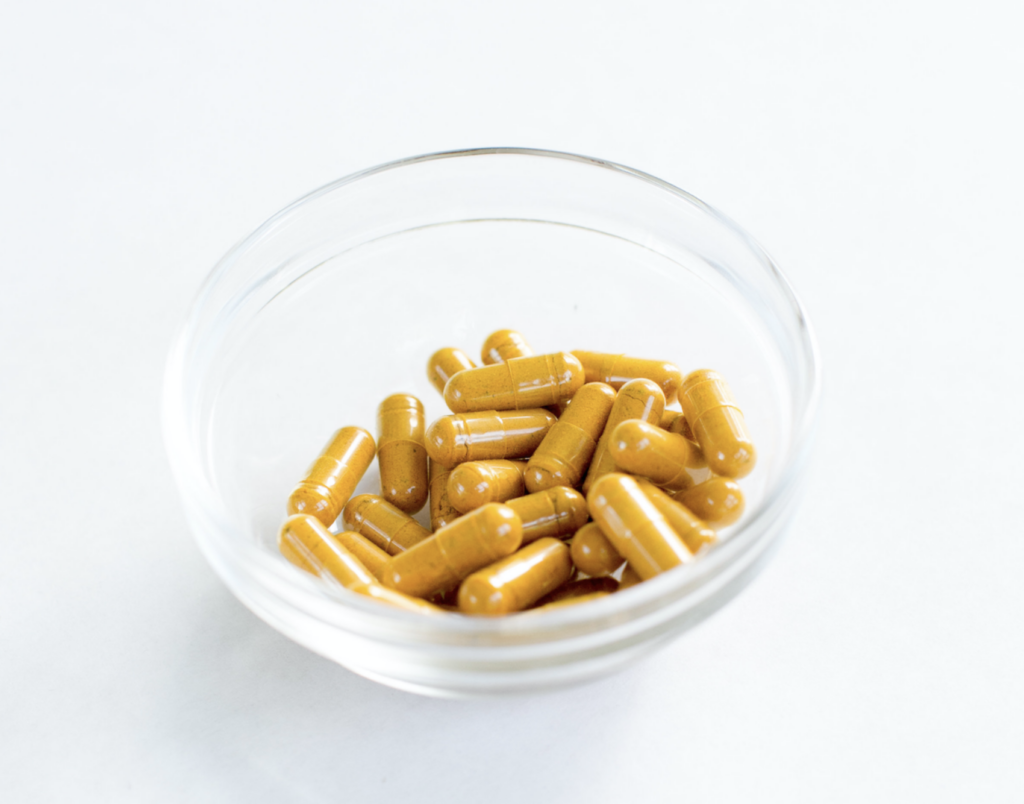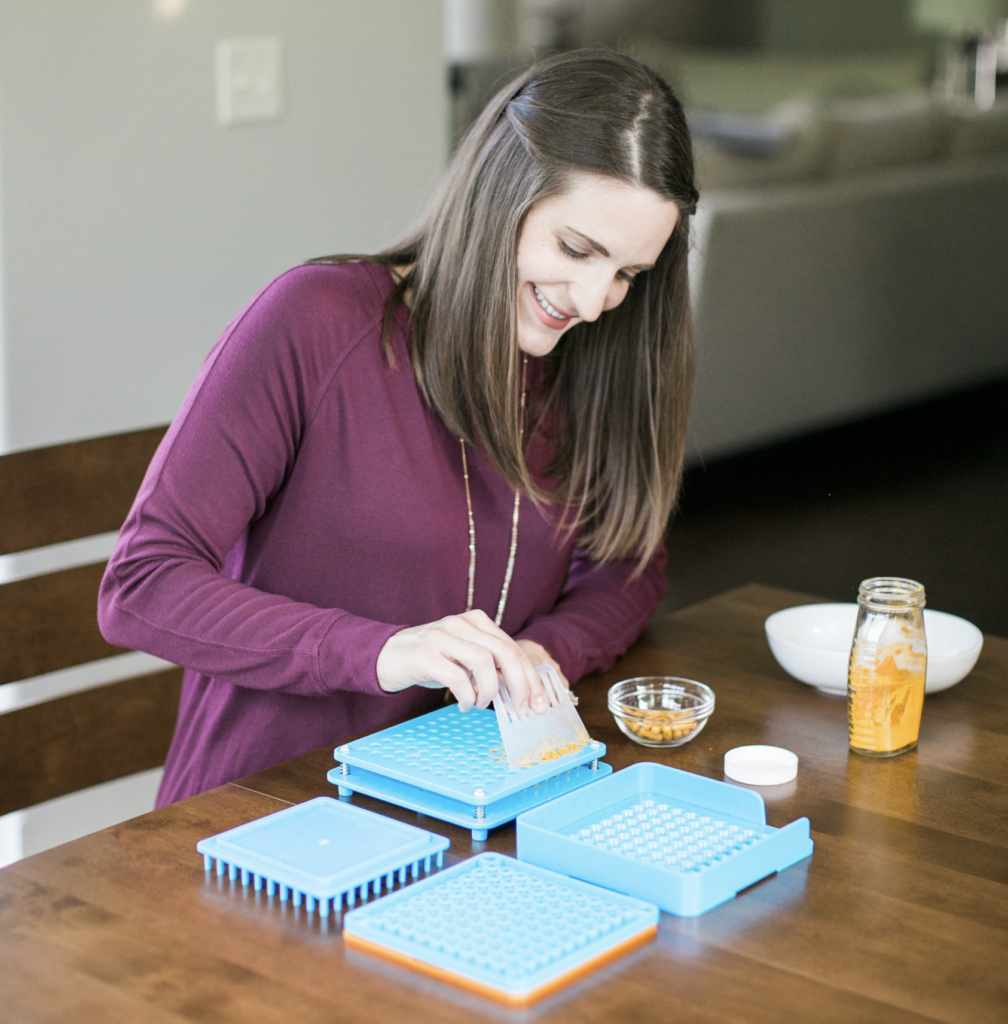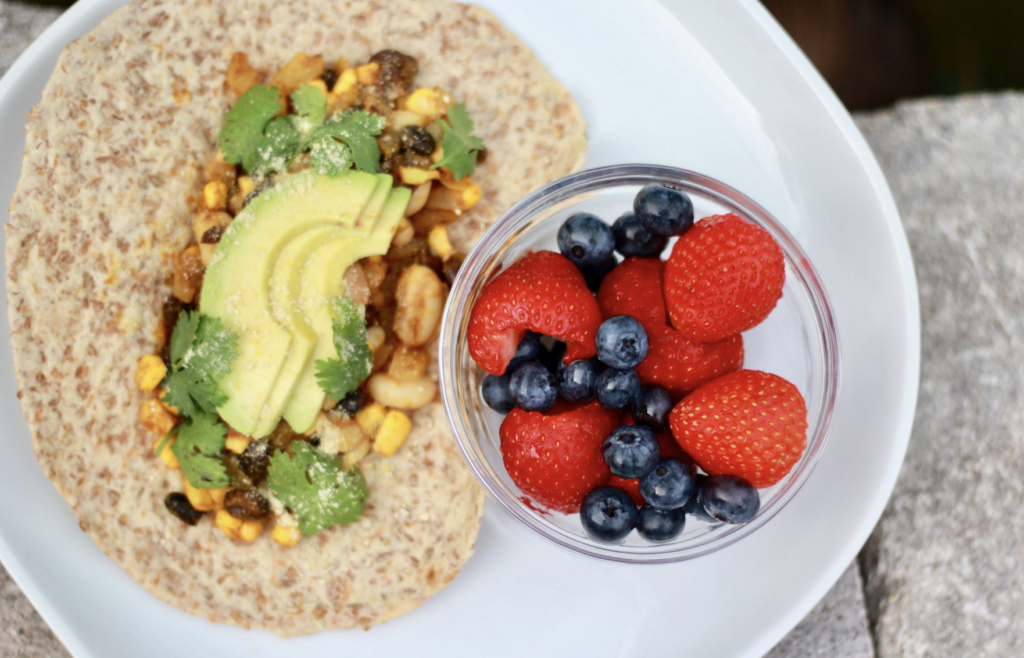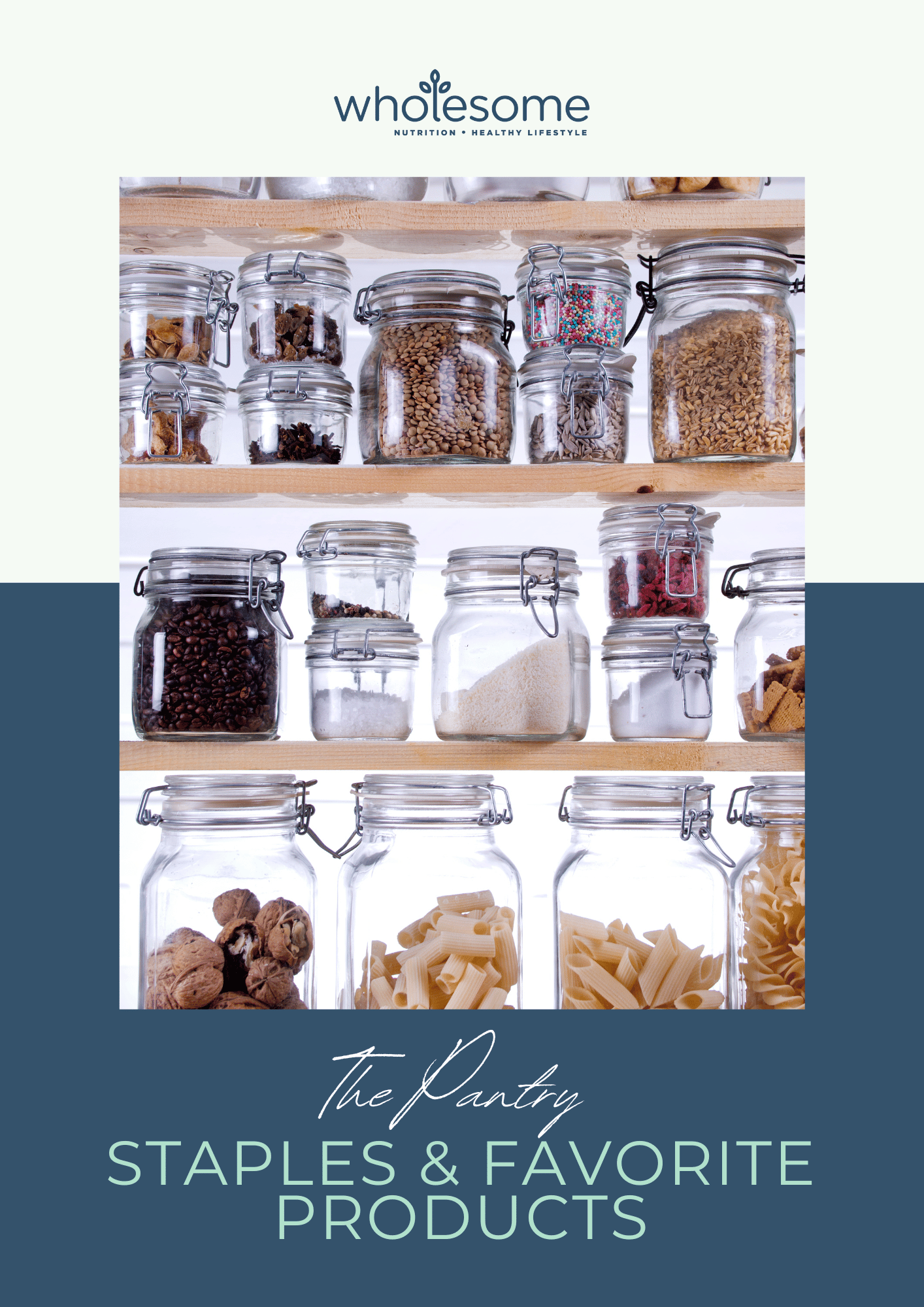The Wholesome Journey - Group Nutrition Coaching Program
Mentorship Program, 1:1 Nutrition Coaching with Alison
What do you want to learn more about?
Program Login
Podcast Features
July 31, 2018
Alison Tierney, MS, RD, CD, CSO
Alison is a registered dietitian, board-certified in oncology nutrition, and a cancer thriver. Her expertise in oncology nutrition and personal experience with her own cancer diagnosis and its treatment provide her with the unique perspective of being able to relate to her clients on an entirely different level. Her content is consistently focused on evidence-based guidelines and seeks to increase the awareness of the power of nutrition to complement traditional cancer therapies.
- Alison Tierney, MS, RD, CD, CSO
- Alison Tierney, MS, RD, CD, CSO
- Alison Tierney, MS, RD, CD, CSO
- Alison Tierney, MS, RD, CD, CSO
- Alison Tierney, MS, RD, CD, CSO
- Alison Tierney, MS, RD, CD, CSO
- Alison Tierney, MS, RD, CD, CSO
- Alison Tierney, MS, RD, CD, CSO
- Alison Tierney, MS, RD, CD, CSO
- Alison Tierney, MS, RD, CD, CSO
- Alison Tierney, MS, RD, CD, CSO
- Alison Tierney, MS, RD, CD, CSO
- Alison Tierney, MS, RD, CD, CSO
- Alison Tierney, MS, RD, CD, CSO
- Alison Tierney, MS, RD, CD, CSO
- Alison Tierney, MS, RD, CD, CSO
- Alison Tierney, MS, RD, CD, CSO
- Alison Tierney, MS, RD, CD, CSO
- Alison Tierney, MS, RD, CD, CSO
- Alison Tierney, MS, RD, CD, CSO
- Alison Tierney, MS, RD, CD, CSO
- Alison Tierney, MS, RD, CD, CSO
- Alison Tierney, MS, RD, CD, CSO
- Alison Tierney, MS, RD, CD, CSO
- Alison Tierney, MS, RD, CD, CSO
- Alison Tierney, MS, RD, CD, CSO
- Alison Tierney, MS, RD, CD, CSO
- Alison Tierney, MS, RD, CD, CSO
- Alison Tierney, MS, RD, CD, CSO
- Alison Tierney, MS, RD, CD, CSO
- Alison Tierney, MS, RD, CD, CSO
- Alison Tierney, MS, RD, CD, CSO
- Alison Tierney, MS, RD, CD, CSO
- Alison Tierney, MS, RD, CD, CSO
- Alison Tierney, MS, RD, CD, CSO
- Alison Tierney, MS, RD, CD, CSO
- Alison Tierney, MS, RD, CD, CSO
- Alison Tierney, MS, RD, CD, CSO
- Alison Tierney, MS, RD, CD, CSO
- Alison Tierney, MS, RD, CD, CSO
- Alison Tierney, MS, RD, CD, CSO
- Alison Tierney, MS, RD, CD, CSO
- Alison Tierney, MS, RD, CD, CSO
- Alison Tierney, MS, RD, CD, CSO
- Alison Tierney, MS, RD, CD, CSO
- Alison Tierney, MS, RD, CD, CSO
- Alison Tierney, MS, RD, CD, CSO
- Alison Tierney, MS, RD, CD, CSO
- Alison Tierney, MS, RD, CD, CSO
- Alison Tierney, MS, RD, CD, CSO
- Alison Tierney, MS, RD, CD, CSO
- Alison Tierney, MS, RD, CD, CSO
- Alison Tierney, MS, RD, CD, CSO
- Alison Tierney, MS, RD, CD, CSO
- Alison Tierney, MS, RD, CD, CSO
- Alison Tierney, MS, RD, CD, CSO
- Alison Tierney, MS, RD, CD, CSO
- Alison Tierney, MS, RD, CD, CSO
- Alison Tierney, MS, RD, CD, CSO
- Alison Tierney, MS, RD, CD, CSO
- Alison Tierney, MS, RD, CD, CSO
- Alison Tierney, MS, RD, CD, CSO
- Alison Tierney, MS, RD, CD, CSO
- Alison Tierney, MS, RD, CD, CSO
- Alison Tierney, MS, RD, CD, CSO
- Alison Tierney, MS, RD, CD, CSO
- Alison Tierney, MS, RD, CD, CSO
- Alison Tierney, MS, RD, CD, CSO
- Alison Tierney, MS, RD, CD, CSO
- Alison Tierney, MS, RD, CD, CSO
- Alison Tierney, MS, RD, CD, CSO
- Alison Tierney, MS, RD, CD, CSO
- Alison Tierney, MS, RD, CD, CSO
- Alison Tierney, MS, RD, CD, CSO
- Alison Tierney, MS, RD, CD, CSO
- Alison Tierney, MS, RD, CD, CSO
- Alison Tierney, MS, RD, CD, CSO
- Alison Tierney, MS, RD, CD, CSO
- Alison Tierney, MS, RD, CD, CSO
- Alison Tierney, MS, RD, CD, CSO
- Alison Tierney, MS, RD, CD, CSO
- Alison Tierney, MS, RD, CD, CSO
- Alison Tierney, MS, RD, CD, CSO
- Alison Tierney, MS, RD, CD, CSO
- Alison Tierney, MS, RD, CD, CSO
- Alison Tierney, MS, RD, CD, CSO
- Alison Tierney, MS, RD, CD, CSO
- Alison Tierney, MS, RD, CD, CSO
- Alison Tierney, MS, RD, CD, CSO
- Alison Tierney, MS, RD, CD, CSO
- Alison Tierney, MS, RD, CD, CSO
- Alison Tierney, MS, RD, CD, CSO
- Alison Tierney, MS, RD, CD, CSO
- Alison Tierney, MS, RD, CD, CSO
- Alison Tierney, MS, RD, CD, CSO
- Alison Tierney, MS, RD, CD, CSO
- Alison Tierney, MS, RD, CD, CSO
- Alison Tierney, MS, RD, CD, CSO
- Alison Tierney, MS, RD, CD, CSO
- Alison Tierney, MS, RD, CD, CSO
- Alison Tierney, MS, RD, CD, CSO
- Alison Tierney, MS, RD, CD, CSO
- Alison Tierney, MS, RD, CD, CSO
- Alison Tierney, MS, RD, CD, CSO
- Alison Tierney, MS, RD, CD, CSO
- Alison Tierney, MS, RD, CD, CSO
- Alison Tierney, MS, RD, CD, CSO
- Alison Tierney, MS, RD, CD, CSO
- Alison Tierney, MS, RD, CD, CSO
- Alison Tierney, MS, RD, CD, CSO
- Alison Tierney, MS, RD, CD, CSO
- Alison Tierney, MS, RD, CD, CSO
- Alison Tierney, MS, RD, CD, CSO
- Alison Tierney, MS, RD, CD, CSO
- Alison Tierney, MS, RD, CD, CSO
- Alison Tierney, MS, RD, CD, CSO
- Alison Tierney, MS, RD, CD, CSO
- Alison Tierney, MS, RD, CD, CSO
- Alison Tierney, MS, RD, CD, CSO
- Alison Tierney, MS, RD, CD, CSO
- Alison Tierney, MS, RD, CD, CSO
- Alison Tierney, MS, RD, CD, CSO
- Alison Tierney, MS, RD, CD, CSO
Turmeric is a popular spice that has been used for centuries. It is known for its anti-inflammatory and antioxidant properties, and many people are interested in incorporating it into their daily routine. But, how many milligrams turmeric per day should you consider and what are the best ways to do so? In this post, we’ll explore the benefits of turmeric, a recommended daily dosage and the different ways you can add it to your diet – including how to make your own capsules!
Real Food vs. Supplements for Overall Health & Cancer Risk Reduction
As an oncology dietitian, I am a huge believer in naturally obtaining nutrients through food whenever possible. Research proves, in most cases, supplemented nutrients fail to provide the same level of nutrient-rich benefits as the consumption of food. Thus, even though I wish I could tell you that all you needed to do was order supplement x, y or z – it’s not the best approach in terms of your overall health and reducing the risk of cancer.
The medical findings to date point towards the belief that nutrients work synergistically [together] to promote optimal health in the body. A vitamin, mineral, or other nutrient isolated all on its own is not nearly as beneficial as it is found in a whole food. Actually, these isolated nutrients can sometimes even have adverse effects!
For example, a 2013 study from the World Journal of Gastroenterology found dozens of reported cases of liver toxicity linked to the use of green-tea extract pills (1). Yet, we do know green-tea contains cancer fighting properties, specifically epigallocatechin gallate (EGCG) (2).
If you’re one of the people who takes these extract pills, I highly recommend replacing the supplement with a steamy cup of green-tea itself!
Now let’s touch on something you might consider including in your daily diet – turmeric…

Why is Turmeric and Curcumin Potentially Beneficial to Our Health?
Thousands of studies have been published in medical literature supporting the use of turmeric and/or curcumin. Turmeric is the yellow spice traditionally used in many Indian dishes. Curcumin a component of turmeric that gives turmeric its bright yellow color.
(Fun fact: It’s also what gives yellow mustard its signature color.)
Did you read ‘Our Top 5 Anti-Inflammatory Foods’ blog post? If so, you may recall turmeric/curcumin is anti-inflammatory which is incredibly beneficial for our health. Why? We go a little more in depth about this in our post titled ‘Pro-Inflammatory Foods’, as inflammation has been identified as the root cause of numerous chronic diseases. Incorporating bountiful amounts of anti-inflammatory foods may reduce our risk of cancer and chronic disease.
Additionally, in in vitro (test tube or petri dish) studies, curcumin has been found to block angiogenesis, or the formation of new blood vessels (3). While the creation of new blood vessels may sound like a healthy phenomenon, it can actually be detrimental in fighting cancer cells. When a tumor creates its own blood supply (through new or existing blood vessels) it thrives, grows, and eventually metastasizes, or spreads. Curcumin has been found to play a role in preventing a tumor from creating its own blood supply.
Two thumbs up for anti-inflammatory and anti-angiogenic properties!
Where else have we seen benefits of turmeric and/or curcumin?
Related to its anti-inflammatory + anti-angiogenic properties, curcumin has been shown to play a role in preventing or treating lung disease, brain disease, and a variety of cancers, including multiple myeloma, colon cancer, and pancreatic cancer (4).
But that’s not all…
Curcumin has also been found to effectively treat:
-
Rheumatoid arthritis – better than the leading drug of choice (5)
-
Osteoarthritis (6)
-
Lupus (7)
-
Inflammatory Bowel Disease (8)
Before you rush to the store to stock your shelves with curcumin supplements, let’s take a look at some interesting details regarding this component of turmeric…
Curcumin vs. Turmeric – What’s More Effective?
It’s amazing on how something so small can help reduce the risk of cancer and other diseases! While curcumin is believed to contribute most of turmeric’s health properties, research suggests that curcumin is not as effective when isolated from turmeric as a whole – sound familiar?
Just like other nutrients are best consumed in tandem with their other naturally occurring ingredients, the same is true of curcumin as it relates to turmeric.
In a study conducted by MD Anderson Cancer Center in Texas, turmeric vs. curcumin was trialed against seven different human cancer cells in vitro (a petri dish). Curcumin itself was effective, but turmeric was even better. These findings suggest turmeric as a whole may contribute more to anticancer activities. (9)
How many milligrams of turmeric per day should I consider for benefits?
Dosing is something we should also be concerned with. Within research studies, doses of turmeric range from less than 1/16th of a teaspoon upwards to 2 tablespoons per day (10). Studies are limited when assessing high turmeric doses for long periods of time. Therefore, it is recommended to consume turmeric in standard culinary amounts, which is to say, about ¼ teaspoon each day–similar to the average consumption in Indian diets (11).
A rough estimation for how many milligrams of turmeric is within 1/4 teaspoon, our estimation is 580 mg. Based on the available research, this 580 milligrams of turmeric per day may be an appropriate amount to experience anti-inflammatory properties and others seen within the available studies. However, speak with your physician and/or your qualified healthcare professional for how much turmeric per day may be best for you and any conditions you may face – and if any amount is okay.
Why Consider Making Your Own Supplements?
If you are the type of person that leans towards the simplicity and ease of use supplements provide, you might want to consider making your own. We advise this is because there has been conclusive evidence of contaminated turmeric supplements containing all sorts of toxic metals like arsenic, cadmium and lead. Thankfully, none of the powdered turmeric samples tested in the U.S. were found contaminated–only the supplements. (12)
Whew! Another win for food over supplements!
Homemade turmeric capsules is my personal choice for how to incorporate turmeric daily. However, if this option doesn’t feel right for you (or, you know you won’t make your own capsules), daily consumption in your foods is a great consideration.
How Can I Incorporate Turmeric Daily?
These are some ways that I enjoy adding ground turmeric to my foods:
-
Sprinkled on avocado toast
-
Added to soups–like this Gingered Butternut Squash Soup!
-
Sprinkled on roasted, mixed vegetables
-
When I enjoy some Indian take out such as, Yellow Lentil Dal or Chana Masala (Yum!)
-
California Burritos (See Recipe Below)
There are a variety of ways to include it in your diet. However, if you’re like me, you find it challenging to incorporate it into foods every single day. So, after a little while, I decided I would try making my own turmeric supplements, you know, for the days when I just didn’t feel like adding it to my food.
After all, you’ve got to have options, right?

How Do I Make My Own Turmeric Capsules?
Although there is a little time involved, making your own turmeric capsules is easier than you might think.
Here’s what you need:
-
-
Size ‘00’ is the perfect size to fit ¼ teaspoon.
-
-
Organic Ground Turmeric & Black Pepper
-
Why black pepper? Research shows the bioavailability (or, the body’s ability to use) of turmeric increases by 2,000% when combined with black pepper due to the compound piperine! (13)
-
Research isn’t entirely conclusive on the ratio of turmeric to black pepper. However, I would recommend approximately 2.5 teaspoons black pepper for every 1 cup of turmeric.
-
To help you walk through the steps on how to actually make the capsules, we made a video to show you. You can find the video here.
*Update: Please note, the video mentions a size 0 capsule. However, a size 00 capsule will be needed to equal 1/4 teaspoon serving. However, a size 0 is still great if that’s what you have – but you’ll need to take 2 to meet the 1/4 teaspoon recommendation!
Grab a family member or a good friend, turn on some music, and enjoy making some turmeric capsules. It is actually quite therapeutic to make them–not just to take them!
Rather watch all of the videos at once? Check out the Full Video on how to make your own turmeric capsules. In my opinion, it is actually quite therapeutic to make my own turmeric capsules.
Are there any concerns regarding taking turmeric?
As always, there are some considerations when thinking about adding turmeric to your daily routine.
-
Too much turmeric may increase the risk of certain kidney stones as turmeric is high in soluble oxalates.
-
This turmeric may cause increased pain for individuals who have gallstones obstructing the bile duct. (14)
-
Turmeric is considered safe during pregnancy, but curcumin supplements may not be. (14)
-
Check with your doctor or health care provider before taking any supplements.
-
Please review our disclaimer here.
Want to make a meal with turmeric tonight? Here is one of my favorites!
CALIFORNIA BURRITOS
Adapted from forksmealplanner.com | Serves: 6 | Ready In: 30 minutes
ingredients
1 large onion, diced
¼ cup vegetable broth
1 ½ teaspoons chili powder
1 teaspoon ground cumin
¼ teaspoon ground turmeric
⅛ teaspoon cayenne pepper (optional)
2 cups frozen organic corn (yes, we recommend organic!)
1, 15.5 ounce can black beans, rinsed & drained
1, 15.5 ounce can cannellini beans, rinsed & drained
2 tablespoons nutritional yeast (optional)
Salt, to taste
6 Angelic Bakehouse wraps (or, whole grain tortillas)
Suggested Toppings
Avocado, sliced
Salsa
Cilantro
directions
In a large saucepan, cook the onion in vegetable broth over medium heat for 5 minutes or until tender. Stir occasionally and add more broth if onions begin to stick.
Add chili powder, cumin, turmeric and cayenne pepper (if using); cook and stir 1 additional minute. Stir in corn and beans; cook 5 minutes or until heated through, stirring occasionally. Remove from heat. If desired, stir in nutritional yeast. Season with salt.
In a dry non-stick skillet over medium heat, warm tortillas one at a time for 40 seconds or until warm. Cover with damp cloth to keep warm.
Now it’s time to dish it up! Add the ‘filling’ and add your desired toppings.
Enjoy!

Blog Updated June 2023
References:
-
Patel SS, Beer S, Kearney DL, Phillips G, Carter BA. Green tea extract: a potential cause of acute liver failure. World J Gastroenterol. 2013;19(31):5174-7.
-
AICR’s Foods That Fight Cancer™. (n.d.). Retrieved July 29, 2018, from http://www.aicr.org/foods-that-fight-cancer/Tea.html
-
Bhandarkar, S., & Arbiser, J. (2007). Curcumin as an inhibitor of angiogenesis. Adv Exp Med Biol,(595), 185-95. doi:10.1007/978-0-387-46401-5_7
-
Greger, M., MD. (2015). Herbs and Spices. In How Not to Die: Discover the Foods Scientifically Proven to Prevent and Reverse Disease (p. 351). New York, NY: Flatiron Books.
-
Chandran B, Goel A. A randomized, pilot study to assess the efficacy and safety of curcumin in patients with active rheumatoid arthritis. Phytother Res. 2012;26(11):1719-25.
-
Kuptniratsaikul V, Dajpratham P, Taechaarpornkul W, et al. Efficacy and safety of Cucuma domestica extracts compared with ibuprofen in patients with knee osteoarthritis: a multicenter study. Clin Interv Aging. 2014;9:451-8.
-
Khajehdehi P, Zanjaninejad B, Aflaki E, et al. Oral supplementation of turmeric decreases proteinuria, hematuria, and systolic blood pressure in patient suffering from relapsing or refractory lupus nephritis: a randomized and placebo-controlled study. J Ren Nutr. 2012;22(1):50-7.
-
Vecchi Brumatti L, Marcuzzi A, Tricarico PM, Zanin V, Girardelli M, Bianco AM. Curcumin and inflammatory bowel disease: potential and limits of innovative treatments. Molecules. 2014;19(12):21127-53.
-
Kim JH, Gupta SC, Park B, Yadav VR, Aggarwal BB. Turmeric (Curcuma longa) inhibits inflammatory nuclear factor (NF)-kB and NF-kB-regulated gene products and induces death receptors leading to suppressed proliferation, induced chemosensitization, and supressed osteoclastogenesis. Mol Nutr Food Res. 2012;56(3):454-65.
-
Gupta SC, Sung B, Kim JH, Prasad S, Li S, Aggarwal BB. Multitargeting by turmeric, the golden spice: from kitchen to clinic. Mol Nutr Food Res. 2013;57(9):1510-28.
-
Siruguri V, Bhat RV. Assessing intake of spices by pattern of spice use, frequency of consumption and portion size of spices consumed from routinely prepared dishes in southern India. Nutr J. 2015;14-7.
-
Turmeric and cucrumin supplements and spices. https://consumerlab.com/reviews/turmeric-curcumin-supplements-spice-review/turmeric/. July 4th, 2018. Accessed July 30, 2018.
-
Shoba, G., Joy, D., Joseph, T., Majeed, M., Rajendran, R., & Srinivas, P. (1998). Influence of piperine on the pharmacokinetics of curcumin in animals and human volunteers. [Abstract]. Influence of Piperine on the Pharmacokinetics of Curcumin in Animals and Human Volunteers.,353-6. doi:10.1055/s-2006-957450
-
Asher GN, Spelman K. Clinical utility of curcumin extract. Altern Ther Health Med. 2013;19(2):20-2.
How Many Milligrams of Turmeric per Day?
Leave a Reply Cancel reply
Featured Articles
Wholesome LLC is not a medical practice, and its employees cannot offer medical advice. This website provides educational information but it is not a substitute for medical advice from a licensed medical professional who is familiar with your particular facts and circumstances. The information contained on this website is not intended to diagnose, treat, or cure any disease and shall not be construed as medical advice. The information and education on this website is provided for you to use at your own discretion.
You can further review our disclaimer here.
Wholesome
About Alison
Courses & Programs
The Wholesome Journey
Free Resources
FAQs
Press & Media
Recipes
Blog
Contact Us
Shop
© 2026 Wholesome, LLC All rights reserved.
Privacy Policy
Terms of Use
Disclaimer
Mobile Terms of Service



Thank you for introducing this important topic. I have been anting to make these supplements for some time, Thanks to your video, I am confidant i will be successful. The links were also a help. My supplies are ordered! Soon I will have my own little jar of healthy turmeric/pepper supplement.
Our pleasure! As you know, we love a whole approach to nutrition as much as possible. Even though it is in a capsule, we are still incorporating the whole spice and know exactly what we are taking. Plus, saving a lot of money! Let us know if you need any help making the capsules.
I made my first batch of Tumeric capsules last night, and was impressed with how easy it was to do! I only made 100 so I could get the hang of it. Now I wish I had made more. There was very little mess (I thought there would be more), and I had fun doing it!
Thank you again Alison for your expertise, guidance, and support! I truly appreciate it!!
Hi Bonnie! We are so happy to hear you enjoyed the process of making the turmeric capsules! You are so welcome–we look forward to sharing more information for you as we go!
I just made my first batch of Tumeric capsules. What did I do wrong that some of them didn’t seem to align and the caps didn’t go down over the body sections so they were wasted.
I appreciate your advice
Thank you
Hi Deborah. I’m sorry to hear your first batch didn’t work out! Did all of the caps not align? Feel free to send me an email at alison@wholesomellc.com and I would be happy to help you troubleshoot. Thanks!
Thank you for the informative article and video on making tumeric capsules! Very helpful.
Hi Gena,
Thank you so much for your comment. You’re very welcome!
In Good Health,
Alison
Really turmeric is a natural source of antioxidant, antibiotic, anti-inflammation, immune-boosting element. People have been using turmeric over 4000 years. I’ve found another informative article about turmeric (https://supplemania.net/turmeric-health-benefits/). Really it’s a miracle root. Thanks for sharing your very informative post about turmeric.
You’re very welcome!
Really turmeric is a natural source of antioxidant, antibiotic, anti-inflammation, immune-boosting element. People have been using turmeric over 4000 years. Thank you for the informative article.I have perused your post, truly you have given this extraordinary informative data about it.
Yes – we love turmeric!
Hello, once I make the capsules using organic turmeric powder and organic black pepper, how many milligrams of curcumin will the capsules contain? I’m currently taking Turmeric with black pepper from Costco (I believe the brand is YouTheory). So how would I know how many milligrams are in these capsules, just by putting it into the capsules myself?
Hi Beth,
Good question. I suggest the 00 capsule since it fits the 1/4 teaspoon which is recommended based on the research available. To determine how much turmeric and curcumin, it would depend on the brand you purchase and some calculations. For example, I use Anthony’s Organic Turmeric (https://amzn.to/37adEKA). Here is the calculation:
1 tbsp = 7 g (7,000 mg)
3 teaspoons = 1 tbsp
So, 12, 1/4 tsp in 1 tbsp
7,000 mg/12 = 583 mg turmeric in each 00 capsule
This product is 2.5% curcumin – 14.5 mg curcumin per capsule.
Keep in mind – the great thing about making your own is that you know exactly what is in the product. Whereas, unfortunately, when studied, it has been found that many supplements do not contain what they say they do.
In the end, I always tell clients you have to do what feels best to you!
I hope that helps!
This is fabulous!
Where do I get this capsule fillet kit?
Hi Shirah! You can find the capsule "maker" here: https://amzn.to/3a4VbRE
I re-update the link pretty frequently. The different sellers sometimes run out and the link becomes no longer active on Amazon. This one worked today though!
Thank you for this article and for the YouTube video. I found it very helpful. The link for the capsule maker didn’t work. Can you please provide an updated one?
Hi Kit! I’m glad you found it helpful. I have updated the maker link – but here it is as well.
https://www.herbaffair.com/collections/capsule-filling-machines/products/capsule-it-capsule-filler
What is the ratio of turmeric to black pepper? Also, it is tur-meric, not tumer-ic.
Hi Vannessa,
I would recommend 2.5 tsp of black pepper to every 1 cup of turmeric.
In Good Health,
Alison
Where do you get your tumeric from?
Hi Roxanne. We order organic turmeric online, typically through Amazon.